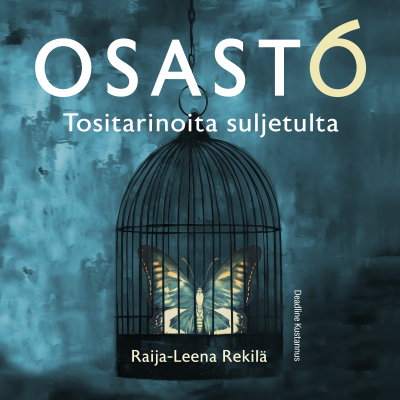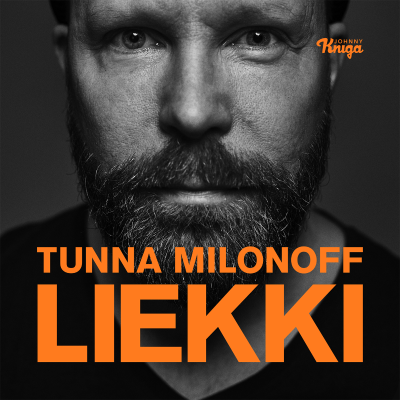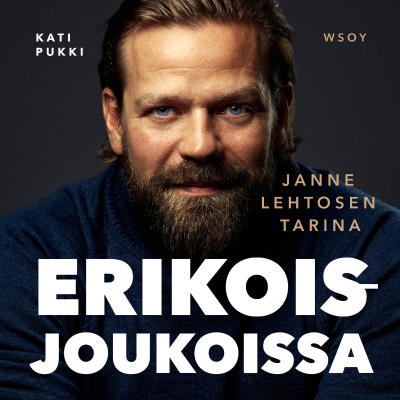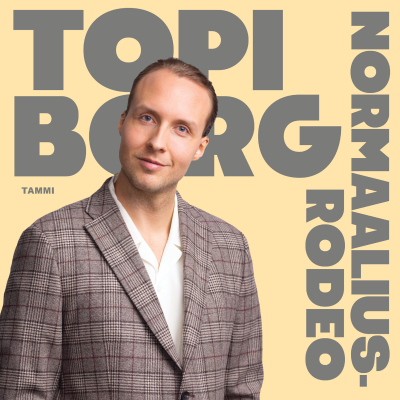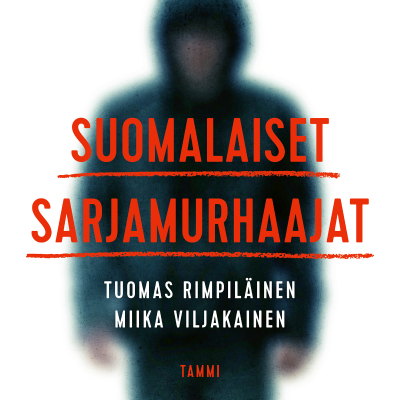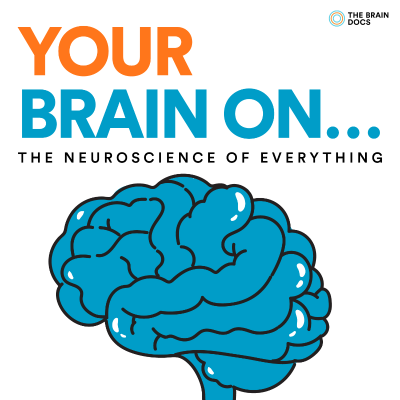
Your Brain On
Podcast by Drs. Ayesha and Dean Sherzai
A podcast about the neuroscience of everything. From neurologists, researchers, and public health advocates Drs. Ayesha and Dean Sherzai, explore every aspect of our world through a neuroscientific lens, with science-based stories, interviews, anecdotes, and brain health facts. Equip yourself with neurologically sound answers to life’s everyday health questions and learn the essentials of brain health and optimization, one topic at a time.
Aloita 90 vrk maksuton tilaus
Kokeilun jälkeen 7,99 € / kuukausi.Peru milloin tahansa.
Kaikki jaksot
50 jaksotStress isn’t just a threat to your brain. It’s also one of its best tools for growth. We often hear that stress is bad for your brain. And it can be. Chronic, unpredictable, and uncontrollable stress can damage cognition, harm memory, and accelerate aging. But we don’t talk enough about how the right kind of stress can actually improve brain function, grow your hippocampus, and help you feel happier and more purposeful. In this episode of Your Brain On..., we explore the science of stress with two brilliant guests: Dr. Sharon Bergquist, Yale- and Harvard-trained internal medicine physician and author of ‘The Stress Paradox’ Dr. Mithu Storoni, neuroscientist and author of ‘Stress-Proof’ and ‘Hyper Efficient’ Together, we explore: • The biological difference between good and bad stress • Why ‘eustress’ (good stress) can actually build your brain • Balancing stress: not too little, not too much • How to use stress as a tool to enhance resilience and protect against aging • What brain imaging reveals about stress hormones, attention, and burnout • Practical ways to reframe, recover from, and even seek out positive stress This is... Your Brain On Stress. SUPPORTED BY: NEURO World. Help your brain thrive, now and into the future: https://neuro.world/ [https://neuro.world/] ‘Your Brain On’ is hosted by neurologists, scientists, and public health advocates Ayesha and Dean Sherzai. ‘Your Brain On... Stress’ • SEASON 5 • EPISODE 7 LINKS Dr. Sharon Bergquist’s website: https://drsharonbergquist.com/ [https://drsharonbergquist.com/] ‘The Stress Paradox’: https://www.harpercollins.com/products/the-stress-paradox-sharon-horesh-bergquist [https://www.harpercollins.com/products/the-stress-paradox-sharon-horesh-bergquist] Dr. Mithu Storoni’s website: https://www.mithustoroni.com/ [https://www.mithustoroni.com/] Stress-Proof: https://www.mithustoroni.com/stress-proof [https://www.mithustoroni.com/stress-proof] CONNECT WITH US Join NEURO World: https://neuro.world/ [https://neuro.world/] Instagram: https://www.instagram.com/thebraindocs [https://www.instagram.com/thebraindocs] YouTube: https://youtube.com/thebraindocs [https://youtube.com/thebraindocs] Website: TheBrainDocs.com [http://thebraindocs.com/]
Stroke is one of the biggest causes of death in the world — but also one of the most preventable. Up to 80–90% of strokes could be avoided with more awareness, resources, and a firmer focus on prevention over intervention. In this episode, we’re joined by renowned stroke neurologist and public health pioneer Dr. Olajide Williams, MD, MS, whose ‘Hip-Hop Stroke’ movement is a shining example of enacting culturally-sensitive community-wide healthcare change. In this episode, we discuss: • What actually causes a stroke (and how to spot one in seconds using the ‘act FAST’ acronym) • Why blood pressure is the #1 modifiable risk factor (and how stress and sleep impact it) • How social determinants like ZIP code and health literacy shape stroke risk • How Dr. Williams’ Hip Hop Stroke campaign helped kids teach their parents how to save lives • What every family should know about TIAs (‘mini-strokes’) and silent strokes Whether stroke runs in your family, or you simply want to protect your brain, this episode could change (and save) lives. This is... Your Brain On Stroke. SUPPORTED BY: NEURO World. Help your brain thrive, now and into the future: https://neuro.world/ [https://neuro.world/] ‘Your Brain On’ is hosted by neurologists, scientists, and public health advocates Ayesha and Dean Sherzai. ‘Your Brain On… Stroke’ • SEASON 5 • EPISODE 6 LINKS Dr. Olajide Williams at Columbia: https://doctors.columbia.edu/us/ny/new-york/olajide-a-williams-md-ms-710-west-168th-street [https://doctors.columbia.edu/us/ny/new-york/olajide-a-williams-md-ms-710-west-168th-street] The Hip-Hop Public Health project: https://www.hhph.org/ [https://www.hhph.org/]
How can we eat better when we’re constantly marketed to in a way that hijacks our attention and habits? To complement the incredible discussions we regularly have about brain-healthy nutrition, in this episode, we’ve having a very important conversation about how the food industry works against our best intentions, and how we can break through the psychological barriers they use to hold us back. We’re joined by Marion Nestle, Professor of Nutrition, Food Studies, and Public Health, Emerita, at New York University, whose name is practically synonymous with food policy: a pioneering nutritionist, public health advocate, and author of some of the most important books in this space, including Food Politics, What to Eat, and Unsavory Truth. In this episode, we discuss: • The neuroscience of why food choices aren’t “just willpower” • Why access, not just knowledge, is the biggest barrier to good nutrition • The importance of schools, policy, and local food programs in shaping food culture • The role of stress, fatigue, and decision overload in weakening dietary choices • Why social media is a double-edged sword for nutrition information • How we can make a difference at the community level This is... Your Brain On The Food Industry. SUPPORTED BY: NEURO World. Help your brain thrive, now and into the future: https://neuro.world/ [https://neuro.world/] ‘Your Brain On’ is hosted by neurologists, scientists, and public health advocates Ayesha and Dean Sherzai. Find out more about Marion Nestle’s work: https://steinhardt.nyu.edu/people/marion-nestle [https://steinhardt.nyu.edu/people/marion-nestle] ‘Your Brain On... The Food Industry’ • SEASON 5 • EPISODE 5 ——— FOLLOW US Join NEURO World: https://neuro.world/ [https://neuro.world/] Instagram: https://www.instagram.com/thebraindocs [https://www.instagram.com/thebraindocs] YouTube: https://youtube.com/thebraindocs [https://youtube.com/thebraindocs] Website: TheBrainDocs.com [http://thebraindocs.com/]
A tiny bite from a tiny tick can trigger a complex disease which speaks to some huge problems with our healthcare system. In this episode, we explain the biology, controversy, and cultural blind spots around Lyme disease, a condition that reflects much more than just a bacterial infection. It’s also a mirror for our most urgent public health issues: inequality, misinformation, climate change, and the growing mistrust of science. We speak with two world-class experts: • Dr. John Aucott: Director of the Johns Hopkins Lyme Disease Clinical Research Center and leading voice on post-treatment Lyme disease syndrome (PTLDS) • Dr. Richard Marconi: Professor of microbiology and immunology at Virginia Commonwealth University, and a pioneering scientist behind next-generation Lyme vaccines Together, we explore: • Why Lyme disease symptoms can linger long after treatment • What makes Lyme so neurologically disruptive (and so hard to diagnose) • How climate change, suburban development, and racial disparities intersect with the rise of tick-borne illness • The dangers of alternative medicine grifters preying on desperate patients • The truth about the original Lyme vaccine, and what’s coming next... We also share practical prevention tips and discuss how Lyme disease is shaping the future of infectious disease research, diagnostics, and brain health. This is... Your Brain On Lyme Disease. ‘Your Brain On’ is hosted by neurologists, scientists, and public health advocates Ayesha and Dean Sherzai. SUPPORTED BY: NEURO World. Help your brain thrive, now and into the future: https://neuro.world/ [https://neuro.world/] ‘Your Brain On... Lyme Disease’ • SEASON 5 • EPISODE 4 ——— FOLLOW US Instagram: https://www.instagram.com/thebraindocs YouTube: https://www.youtube.com/thebraindocs Website: https://thebraindocs.com/ [https://thebraindocs.com/]
Restoring a person’s ability to speak, enabling individuals with paralysis to regain movement, and detecting neurodegenerative diseases earlier than ever — these are just some of the breakthroughs brain-computer interfaces are making possible. In this episode, we explore the astonishing world of BCIs: technologies that are giving autonomy and independence back to people with diseases like ALS. We discuss: • How BCIs are helping people with neurodegenerative diseases and spinal cord injuries communicate using decoded brain signals • How brain-computer interfaces actually work (and why they’re NOT just reading your mind) • Why motor cortex implants may help decode speech, even when inserted in unexpected regions • The ethical challenges of privacy, data ownership, and access in the era of brain-connected devices • The future of the field, from restoring language after stroke to enabling communication in children with cerebral palsy We speak with three world-leading researchers and clinicians who are helping shape this rapidly-advancing area of neuroscience: • Dr. Leigh Hochberg, director of the Center for Neurotechnology and Neurorecovery at Massachusetts General Hospital, and principal clinical investigator of the pilot clinical trials of the BrainGate Neural Interface System. • Dr. David Brandman, neurosurgeon and co-director of the UC Davis Neuroprosthetics Lab. • Dr. Sergey Stavisky, neural engineer and co-director of the UC Davis Neuroprosthetics Lab. For more information about the Braingate project, and to volunteer as a participant, visit: https://braingate.org/ [https://braingate.org/] This is... Your Brain On Brain-Computer Interfaces. ‘Your Brain On’ is hosted by neurologists, scientists and public health advocates Ayesha and Dean Sherzai. ‘Your Brain On... Brain-Computer Interfaces’ • SEASON 5 • EPISODE 3 ——— FOLLOW US Instagram: https://www.instagram.com/thebraindocs YouTube: https://www.youtube.com/thebraindocs Website: https://thebraindocs.com/
Aloita 90 vrk maksuton tilaus
Kokeilun jälkeen 7,99 € / kuukausi.Peru milloin tahansa.
Podimon podcastit
Mainoksista vapaa
Maksuttomat podcastit











